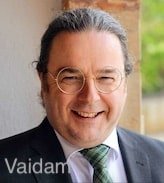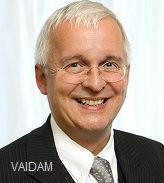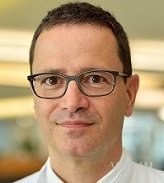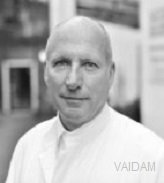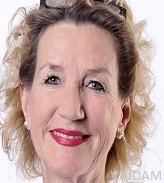Stem Cell Therapy in Germany
Germany has emerged as a global epicenter for regenerative medicine, offering some of the most sophisticated and ethically guided stem cell therapies in the world. Renowned for its clinical precision, biotechnological innovation, and patient-centric care, the country attracts individuals seeking advanced solutions for a wide range of degenerative, autoimmune, and neurological conditions. Esteemed institutions such as Charité – Universitätsmedizin Berlin, University Hospital Heidelberg, Munich’s LMU Klinikum, and University Hospital Freiburg lead the charge in integrating stem cell-based interventions into personalized treatment regimens. Leveraging state-of-the-art laboratories, rigorous safety protocols, and a multidisciplinary approach, Germany offers a sanctuary of hope for patients seeking scientifically validated alternatives beyond conventional therapy.
Are you considering stem cell therapy in Germany? Connect with experienced specialists, explore your options, and take the first step toward a personalized regenerative treatment plan.
What It Is & How It Works
Stem cell therapy represents a pinnacle of regenerative medicine, utilizing the intrinsic potential of mesenchymal stem cells (MSCs)—typically derived from the patient’s own bone marrow or adipose tissue—to initiate repair and revitalization of diseased or injured tissues. These multipotent progenitor cells, renowned for their immunomodulatory and trophic capabilities, serve as biological orchestrators of healing. Through the secretion of paracrine growth factors, anti-inflammatory cytokines, and pro-angiogenic molecules, MSCs not only ameliorate inflammation and restore vascular integrity, but also stimulate endogenous cellular proliferation and differentiation. In the realm of neurological and spinal disorders, they play a pivotal role in neural regeneration, fostering remyelination, synaptic repair, and glial support—acting as a dynamic scaffold for central nervous system (CNS) restoration. This cellular approach not only addresses symptomatic relief but also targets underlying pathophysiological degeneration, offering hope where conventional therapies fall short.
Germany is recognized globally for its leadership in translational regenerative medicine. Key advances include:
- Secretome/Exosome Therapy: A refined approach that deploys stem cell-derived bioactive factors rather than whole cells, enhancing safety and regenerative potency in spinal injuries and neurological conditions
- Partnerships with Robotics: For spinal cord injury, Germany’s ANOVA IRM collaborates with robotic exoskeleton providers in programs like REMCell—blending cell therapy with neurofunctional training for improved mobility
- Rigorous Regulatory Framework: Between the Paul-Ehrlich-Institut and German Stem Cell Network, the use of adult autologous MSCs is tightly regulated to ensure peak safety and ethical standards
🇩🇪 Germany’s Stem Cell Therapy in Cancer Care: Success Metrics by Type
| Cancer Type (CA) | Stem Cell Approach Used | Key Hospitals in Germany | Success Metrics | Notes |
| Leukemia (AML, ALL) | Allogeneic Hematopoietic Stem Cell Transplantation (HSCT) | Charité – Berlin, University Hospital Heidelberg, LMU Klinikum Munich | 5-year DFS: 55–70% in eligible patients
Overall survival: up to 75% in CR1 |
Best outcomes when performed early in remission; donor match crucial. |
| Lymphoma (Hodgkin/Non-Hodgkin) | Autologous Stem Cell Rescue Post High-Dose Chemotherapy | Klinikum Rechts der Isar Munich, University Hospital Frankfurt | DFS: ~60–80% in relapsed/refractory cases
Recurrence reduced with tandem transplantation |
Often used after second-line chemotherapy. |
| Multiple Myeloma | Autologous Stem Cell Transplantation (ASCT) | University Medical Center Hamburg-Eppendorf, DKFZ Heidelberg | Median DFS: 36–50 months
Minimal Residual Disease (MRD) negative rates up to 60% |
Maintenance therapy post-ASCT improves long-term outcomes. |
| Neuroblastoma (Pediatric) | Tandem Autologous HSCT with Immunotherapy | University Children’s Hospital Tübingen, LMU Children’s Hospital Munich | DFS in high-risk cases: ~50–65%
Reduced recurrence when combined with GD2-targeted immunotherapy |
High-risk children benefit from early intervention. |
| Glioblastoma | Experimental: Neural stem cells, Exosome therapies, and secretome-guided microenvironment targeting | Charité Brain Tumor Center, German Cancer Research Center (DKFZ) Heidelberg | Early-stage data show increased survival by 6–12 months
Recurrence delayed in certain cell-line trials |
Still largely clinical-trial based. May complement surgery/radiation. |
| Solid Tumors (Breast, Lung) | Supportive autologous MSC therapy post-chemotherapy (in select trials) | University Hospital Freiburg, Helios Berlin-Buch | QoL improvement noted, DFS extension under investigation in triple-negative subtypes | Not standard yet; under ethical trial supervision. |
| Spinal Cord Tumors | MSCs + Neurorehabilitation (robotic exoskeleton integration) | ANOVA IRM Frankfurt, BG Unfallklinik Ludwigshafen | Improved motor response and sensory regain in 45–60% of cases
Long-term recovery improved |
Combined approach enhances neural repair. |
Role of Cancer Rounds Services: Bridging Global Care with German Precision
Cancer Rounds acts as a patient-centric, digital oncology concierge platform that bridges the gap between advanced cancer care in Germany and patients worldwide seeking cutting-edge, personalized treatments—like stem cell therapy, immunotherapy, and precision oncology.
Key Roles & Benefits:
| Function | How It Helps Patients |
| Global Case Coordination | Cancer Rounds gathers patient medical records, imaging, and labs, and presents them to multidisciplinary tumor boards in Germany. |
| Hospital Navigation | They help patients choose top hospitals in Germany like Charité, DKFZ, Heidelberg, LMU Munich, and coordinate appointments. |
| Second Opinion Services | Access to world-class oncologists and stem cell specialists for trusted expert opinions before major decisions. |
| Logistics and Travel Support | From visa letters to stay arrangements, Cancer Rounds eases the entire medical travel process. |
| Treatment Monitoring | Post-treatment, the team helps patients stay in touch with German clinicians for continuity of care and follow-up. |
| Cost Transparency & Counselling | They offer clear pricing estimates, insurance assistance, and help reduce unnecessary expenses. |
| Digital Tumor Boards | Curated panels of international oncologists recommend the best integrative approach, including stem cell and advanced trials. |
Why It Matters in Stem Cell Therapy
For complex therapies like autologous or allogeneic stem cell transplantation, timing, eligibility, hospital selection, and cellular compatibility are critical. Cancer Rounds ensures patients:
- Are evaluated early by the right clinical and scientific teams.
- Undergo pre-transplant planning with reduced waiting times.
- Receive pre-habilitation and post-treatment guidance, enhancing outcomes.
Whether it’s a patient with relapsed lymphoma or a child with high-risk neuroblastoma, Cancer Rounds acts as the navigation, coordination, and support backbone, making the German stem cell therapy journey seamless, ethical, and effective.
Types of Therapies & Clinical Services
Therapy Modalities in Stem Cell Treatment: A Closer Look
1. Autologous Bone Marrow Concentrate (BMC) or Adipose-Derived Stem Cell (ADSC) Therapy
This widely practiced and ethically preferred method involves extracting mesenchymal stem cells (MSCs) from the patient’s own bone marrow or fat tissue—often from the iliac crest or abdominal region. These cells are minimally manipulated under sterile, regulated conditions, ensuring both biocompatibility and immunological safety. Once harvested, they are processed and either injected locally into injured tissues (e.g., joints, spinal discs) or infused systemically, depending on the condition.
These autologous therapies are ideal for orthopedic degeneration, early neurodegenerative disorders, and post-stroke recovery, promoting tissue repair, angiogenesis, and anti-inflammatory effects without the risk of rejection.
2. Secretome or Exosome-Based Regenerative Therapy
At the frontier of cell-free regenerative medicine, this modality uses bioactive vesicles—such as exosomes, growth factors, and cytokines—secreted by stem cells. Instead of transplanting entire cells, clinicians administer these potent molecular packages to activate the body’s own repair mechanisms.
These therapies have shown great promise in neurological conditions like Parkinson’s disease, multiple sclerosis, or spinal cord injury, as well as orthopedic and cardiac regeneration. Their reduced immunogenicity, non-cellular nature, and ease of storage/administration make them an emerging favorite in clinical trials across Germany’s regenerative medicine centers.
3. Umbilical Cord-Derived or Donor (Allogeneic) MSC Therapy
Although less commonly used in routine treatments, umbilical cord blood, Wharton’s jelly-derived MSCs, and donor-derived stem cells are employed in highly specific, ethically approved protocols. These are especially reserved for hematological malignancies, certain inherited immunodeficiencies, or where the patient’s own stem cells are compromised. In Germany, such treatments are offered under rigorous Good Manufacturing Practice (GMP) and European Medicines Agency (EMA) oversight, often in clinical trial or compassionate use settings. Leading centers like Charité – Berlin, Helios Klinikum Leipzig, and University Hospital Heidelberg are among the few equipped with advanced cellular engineering labs to handle these sophisticated procedures.
While donor MSCs may carry a risk of graft-versus-host disease (GVHD) or immune reaction, matching, purification, and cell priming techniques have significantly reduced complications.
Clinical Applications:
- Neurological & Neurodegenerative Diseases: Conditions such as stroke rehabilitation, Parkinson’s, Alzheimer’s, ALS, optic nerve atrophy, and spinal cord injury benefit from regenerative protocols
- Orthopedic & Musculoskeletal: Osteoarthritis, tendon injuries, degenerative discs, and joint cartilage regeneration using MSCs
- Oncology & Supportive Therapy: Adjunctive stem cell protocols for oncologic conditions including blood disorders and glioblastoma, often combined with conventional therapy
Indications, Contraindications & Ideal Candidate
| Indications | Contraindications |
| Stroke sequelae, ALS, optic nerve injury, Parkinson’s, Alzheimer’s | Active malignancy without oncologist clearance |
| Spinal cord injury, cerebral palsy | Significant autoimmune disorders (risk profile) |
| Osteoarthritis, tendon injuries, degenerative spine | Pregnancy, serious infection |
| As adjunctive therapy in oncology | Severe organ failure or uncontrolled systemic disease |
| Cosmetic & anti‑aging (limited clinical evidence) | Unlicensed experimental therapies or unregulated providers |
Ideal Candidate: Someone with a stable chronic condition—particularly neurological or orthopedic—willing to participate in structured, evidence-based cell therapy under multidisciplinary care.
Stem Cell Therapy Cost in Germany (Typical Ranges)
The cost of stem cell therapy in Germany typically ranges from €3,000 to over €30,000, depending on the medical condition, type of treatment, and clinic. Reliable estimates include:
- Neurological (stroke, ALS, Parkinson’s, optic nerve injury): €20,000 – €28,000 per treatment cycle
- Spinal Cord Injury with REMCell package (cell secretome + exoskeleton training): Several tens of thousands of Euros, inclusive of diagnostics, therapy, rehabilitation
- Orthopedic/Joint therapies: €3,000 – €10,000 depending on scope and source of MSCs
- Anti-aging cosmetic applications: €5,000 – €15,000 based on clinic protocols
Top Centers & Clinical Outcomes
- ANOVA Institute for Regenerative Medicine (Offenbach/Frankfurt): A leading center focused on translational cellular therapies, especially for neurological and spinal conditions
- Clinics (Frankfurt, Mannheim, Bonn): Offer standardized treatment packages, international patient support, and documented outcomes across multiple indications
Success Rates:
- Stroke and ALS patients often report 80–90% measurable improvement or stabilization in function and quality of life after stem cell therapy
- Orthopedic applications show good to excellent outcomes in cartilage and tendon repair in 70–85% of cases.
Related Doctors
Need More Recommendations ?
Leading Stem Cell Therapy Clinics & Centers in Germany
Here is the list of Stem Cell therapy clinics and centers in Germany offering or supporting advanced stem cell therapy and regenerative medicine:
- Charité – Universitätsmedizin Berlin
- University Hospital Heidelberg
- LMU Klinikum Munich
- Klinikum Rechts der Isar, Munich
- University Hospital Frankfurt
- University Medical Center Hamburg-Eppendorf
- German Cancer Research Center (DKFZ), Heidelberg
- University Children’s Hospital Tübingen
- LMU Children’s Hospital, Munich
- Charité Brain Tumor Center
- University Hospital Freiburg
- Helios Hospital Berlin-Buch
- ANOVA Institute for Regenerative Medicine (IRM), Frankfurt
- BG Unfallklinik, Ludwigshafen
Notable Stem Cell Therapy doctors in Germany
Here are some reputable doctors in Germany known for their expertise in stem cell therapy and regenerative medicine:
| Specialist / Clinic | Focus Area | Notable Treatments & Strengths |
|---|---|---|
| Dr. Markus Klingenberg (Beta Klinik Bonn) | Orthopedic / Joint Therapy | SVF MSCs for arthritis, tendon & ligament issues |
| Prof. Dr. Gerald Zimmermann (Mannheim) | Regenerative Orthopedics | Meniscus, ligament, joint repair using CellReg SVF |
| Dr. Elke Jaeger (Oncology specialist) | Hematology / Cancer Therapy | Stem cell transplants for leukemia, lymphoma |
Inspiring Patient Success Stories
- Stroke Recovery Regained: A patient with chronic ischemic stroke experienced sharper motor and cognitive recovery through stem cell regenerative therapy at Frankfurt, achieving independence in daily activities.
- ALS Stabilization: In Offenbach, ALS patients undergoing MSC protocols reported remarkable slowing of disease progression and improved breathing function.
- Spinal Cord Liberation: A patient with incomplete spinal cord injury regained partial walking ability through ANOVA’s REMCell regimen—combining MSC secretome therapy and HAL robotic training.
- Vision Restoration: A case of optic nerve atrophy treated via autologous MSC infusion resulted in improved vision clarity, reducing dependency on visual aids.
FAQ Related to Stem Cell Therapy
Q1. What is stem cell therapy?
Stem cell therapy is a regenerative medical treatment that uses your own (autologous) or donor stem cells to repair and rejuvenate damaged tissues.
Q2. How safe is stem cell therapy in Germany?
Stem cell therapy in Germany is strictly regulated and typically involves only autologous or minimally manipulated mesenchymal stem cells (MSCs), ensuring a high standard of safety and compliance.
Q3. How long does the treatment process take?
From initial evaluation to completion, the treatment process usually spans several weeks to a few months, depending on your condition and treatment plan.
Q4. How many therapy sessions are required?
Most patients undergo one treatment cycle. Additional sessions may be recommended based on individual response and follow-up evaluations.
Q5. What is secretome therapy?
Secretome therapy involves the use of a purified, cell-free liquid derived from stem cells, delivering regenerative signals without the use of live cells.
Q6. Can stem cell therapy be combined with conventional treatments?
Yes. It is often integrated with standard medical care, such as surgery, radiotherapy, or rehabilitation—especially in stroke and cancer treatment.
Q7. Is stem cell therapy legal and ethical in Germany?
Yes. Stem cell therapy is fully regulated, and ethical standards prohibit the use of embryonic or fetal cells except in rare cases under strict oversight.
Q8. Is English-speaking support available for international patients?
Absolutely. Many clinics offer multilingual support, including interpreters and patient coordinators, to assist English-speaking visitors.
Q9. What follow-up care is provided?
Structured follow-up care includes outpatient support and rehabilitation programs to monitor and enhance recovery over time.
Q10. Can I get a second opinion remotely?
Yes. Clinics like ANOVA and Booking Health provide secure remote consultations and personalized treatment planning.
Q11. What outcomes can I realistically expect?
Many patients experience noticeable improvement within weeks, with continued progress over the following months depending on their condition.
Q12. Who may not be eligible for stem cell therapy?
Individuals with active infections, unstable chronic illnesses, or serious co-existing medical conditions may not qualify for treatment.
Q13. Is the therapy covered by insurance?
Stem cell therapy is usually self-funded, although some private international health plans may offer partial reimbursement or flexible payment options.
Q14. How is quality and safety ensured?
German clinics adhere to strict quality controls, including ISO-certified laboratories and compliance with national medical regulations.
Q15. Why choose Germany for stem cell therapy?
Germany offers advanced, research-driven clinics, rigorous ethical oversight, and a high success rate—along with excellent care for international patients.
Q16. Where can I get stem cell treatment for spinal cord injury in Germany?
Several advanced clinics in Germany offer stem cell therapy for spinal cord injuries, including treatment planning, rehabilitation, and follow-up care. One such option is through Cancer Rounds, a medical platform that connects international patients with specialized German clinics offering regenerative treatments tailored to neurological conditions like spinal cord injuries.
You May Be Also Interested In
All Treatment Pages
Related Patient Stories
From Kenya to India, Cancer Rounds helped me find the right care for my brain tumor. Thanks to Dr. Sandeep Vaishya, I’m healing after brain tumor surgery.
Forever grateful to Cancer Rounds and Dr. Sandeep Vaishya for guiding us through a scary brain tumor diagnosis—turned out to be a skull lesion! I'm healthy again!
Cancer Rounds supported my father’s bone cancer journey from Myanmar to India. From travel to treatment in Chennai, everything was arranged with care. After radiotherapy, his pain eased—and we’re truly grateful.
Our Impact
CancerRounds is making quality cancer care accessible to more people every day.




Why Choose India for Cancer Treatment?

World-Class Care
Skilled oncologists provide top-tier medical services

Affordable Treatment
Costs are significantly lower than in Western countries.

Comprehensive Packages
Hospitals offer all-inclusive plans covering surgery, stay, and aftercare.

Easy Accessibility
Well-connected airports and international flight routes.

Proven Success
High patient satisfaction and positive treatment outcomes
